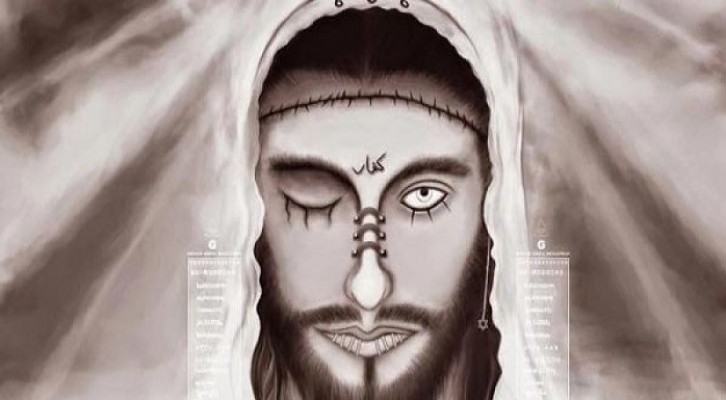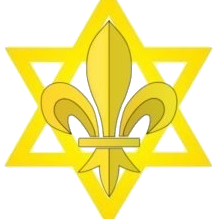The sacred texts of the abrahamic religions religions have historically inspired some of the most devastating conflicts in human history. For the promise of universal peace, these texts must be transcended and reinterpreted, embracing the symbolic and humorous spirit of a “New Torah” because the Torah is the source of all this mess. The view here is that God embodies humor, and the New torah’s playful, symbolic approach of sacred writings can usher humanity into a new era of peace.
Among the three major monotheistic religions, Islam is framed in this perspective as an ultimate heresy. Why, because Islam is the purest monotheism. Hence, there emerges a need for a “Kuffar” to save the world.
In Islamic tradition, the Dajjal, a figure of eschatological significance, is depicted with the Semitic root KPR inscribed on his forehead:
- Arabic: ك-ف-ر
- Hebrew: כ-פ-ר
The root letters “Kaf-Peh-Resh” carry the meaning “to cover” or “to conceal” (כפר). This same root gives rise to the word “Kippur” such as in ‘Yom Kippur”, the day of atonement on which sins are “covered.”
This KPR root also appears in the Hebrew term “Kofèr” (or “Kuffar” in Arabic), meaning “Unbeliever” or “Heretic,” someone who conceals or obscures religious truth (כופר).
In gematria, the numerical value of KPR (כפר) is 300, equating to the gematria of “Ruach Elohim” (“The Spirit of God”), alluding to a messianic dimension (רוח אלהים):
“The Spirit of God moved upon the surface of the waters” (Genesis 1:2).
In this reinterpretation, everything is inverted: the messianic dimension lies within insubordination and rebellion against forces of destruction and, specifically, in resisting religious extremism. Thus, the “Mashiach” (Messiah) embodies the “Kuffar”: the dissenter, the “Un-Believer” : ‘Un” means “One” in French.

The Messiah, or the Dajjal (peace be upon him), is envisioned here as the revealer of the light from the feminine dimension that religious obscurantism seeks to shroud. He is already present—within each of us.
The Messiah-Dajjal, then, is the one who symbolically “kills” Jesus in the final confrontation, discovering the divine “Je suis” (“I am” in French) without rejecting the “Yud” (the Hebrew “i”).
Light emerges from darkness. This calls for symbolically “setting fire” to the Qur’an to draw out the enlightenment from each surat. A “New Qur’an”, a Qur’an of the Dajjal, could lead humanity toward universal peace.
